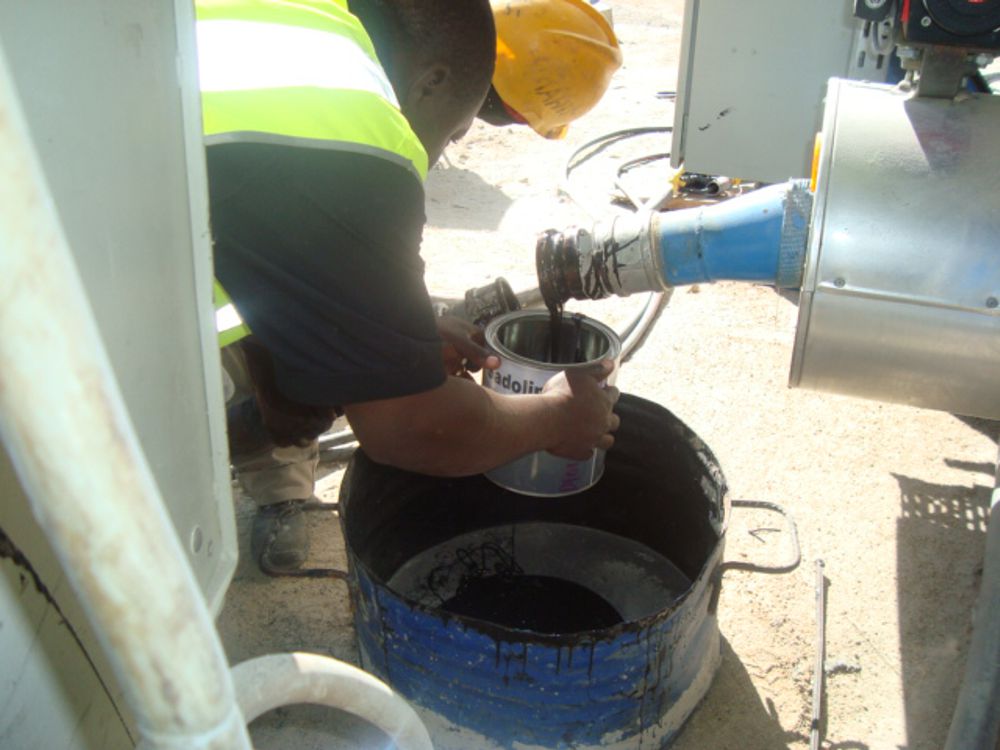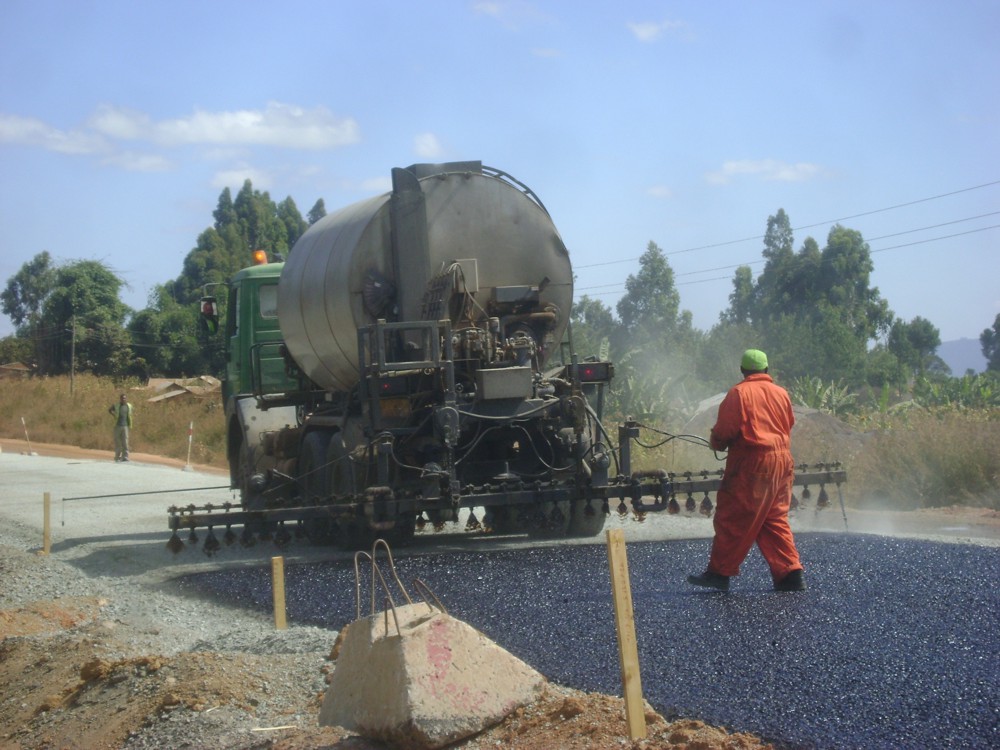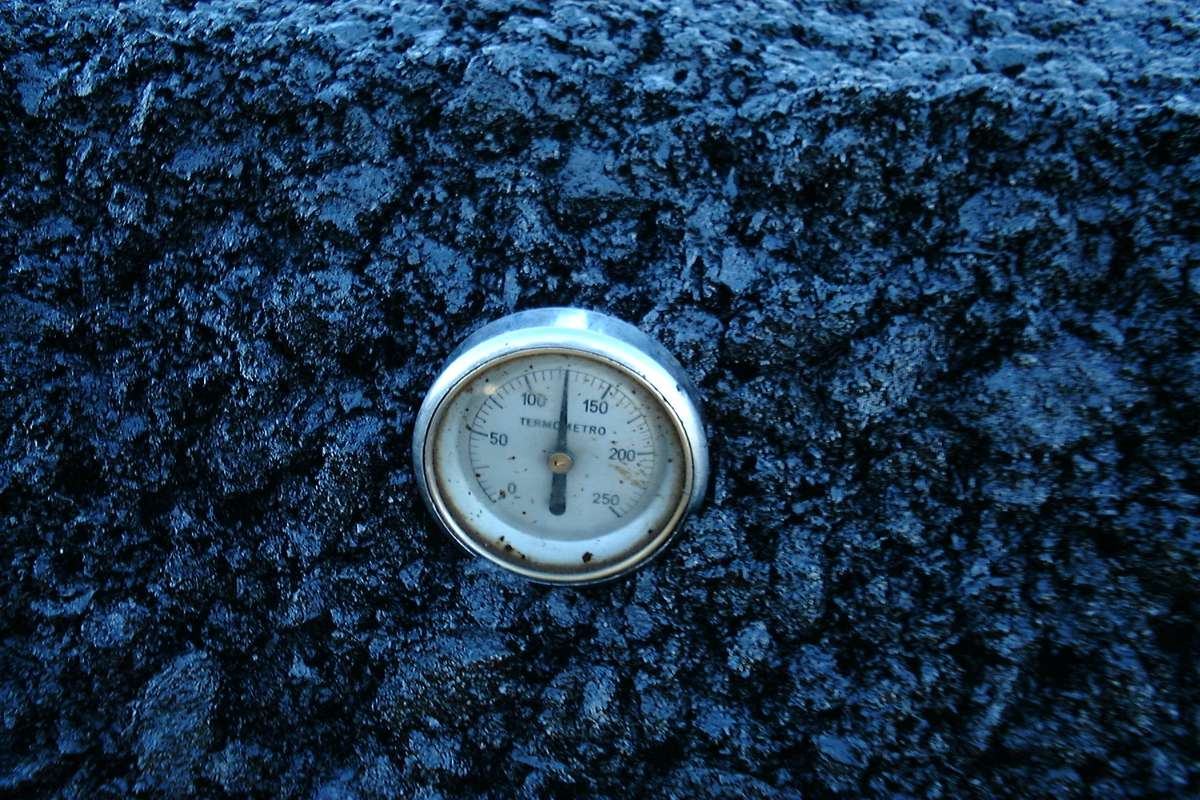What is Bitumen?
Bitumen is a by-product of crude oil which is known for its waterproofing and adhesive properties. In ancient times, bitumen was mainly used for binding building materials together. Nowadays, this material has more than 250 applications; including paving roads, roofing, waterproofing, sealing, and insulating.
Bitumen can also be extracted from bituminous rocks in nature; however, the majority of bitumen is produced in oil refineries by distillation of crude oil. Based on the source, the bitumen can have various properties and its consistency, stiffness, viscosity, adhesion, and durability may be different.
To make bitumen more understandable, Infinity Galaxy created a comprehensive video about the bitumen manufacturing process. In the below video, you can see how is created in nature, how it is extracted from oil, what its classifications are and what uses it has.

What is Natural Bitumen and how is it Produced?
As the video depicts, natural bitumen is extracted from ancient deposits that have been created more than 360 years ago. Known also as oil sands, these natural deposits of bitumen have been formed during the Carboniferous period, when giant swamp forests dominated many parts of the Earth. Lots of creatures dyed and buried under layers of sediment in these forests and transformed into kerogen, oil, and bitumen.
Currently, ancient deposits of bitumen exist in many parts of the world, particularly Canada, Venezuela, and Oman. These sources of natural bitumen are a mixture of sand, clay, and water, and bitumen. In Canada and Venezuela, natural deposits of bitumen or oil sands are too far from the surface of the ground, therefore, they need to be extracted by a method called IN-SITU. In this method of extraction, we send steam into oil sands to reduce the bitumen’s viscosity and pump the mixture of bitumen and water to the surface.
Natural bitumen has also up to 5% sulphur, heavy metals, and other impurities that must be refined, which makes the manufacturing process of natural bitumen more expensive than refined bitumen.

What is Petroleum or Refined Bitumen?
Refined bitumen is produced by the distillation of crude oil. In an atmospheric distillation column in refineries, we heat crude oil between 300 and 350 C to separate low boiling point fractions from high molecular weight parts. There are several trays in the distillation column that help with separation of oil’s lighter fractions. Petroleum derivatives such as fuel oils, Naphtha, Diesel, and petrol are some of the light fractions of crude oil, manufactured in the distillation column.
The heaviest part of crude oil that remains at the bottom of the distillation column is called Vacuum Bottom. VB is the raw material for the production of bitumen. We transfer vacuum bottom to a vacuum distillation unit to remove the last traces of the lighter fractions. In this step, we put the vacuum bottom under a controlled amount of pressure and temperature to produce bitumen with varying degrees of hardness. Air-blowing is another technique for processing vacuum bottom, in which air is blown into bitumen at 230-260°C to raise its softening point.
Different types of bitumen, including penetration grade bitumen, viscosity grade bitumen, cutback bitumen, and bitumen emulsion are produced from vacuum bottom in a vacuum distillation unit Depending on the quality of the crude oil and the process used in the refinery; bitumen may have some variations in terms of penetration value, softening point, viscosity level, and so on.

In industries where materials like bitumen play a crucial role, maintaining accurate and efficient documentation is essential. Utilizing tools like Yabbra can streamline the creation, conversion, and editing of PDF files, ensuring that all stakeholders have access to precise and up-to-date information. This not only enhances collaboration but also contributes to the overall success of projects involving bitumen.




























